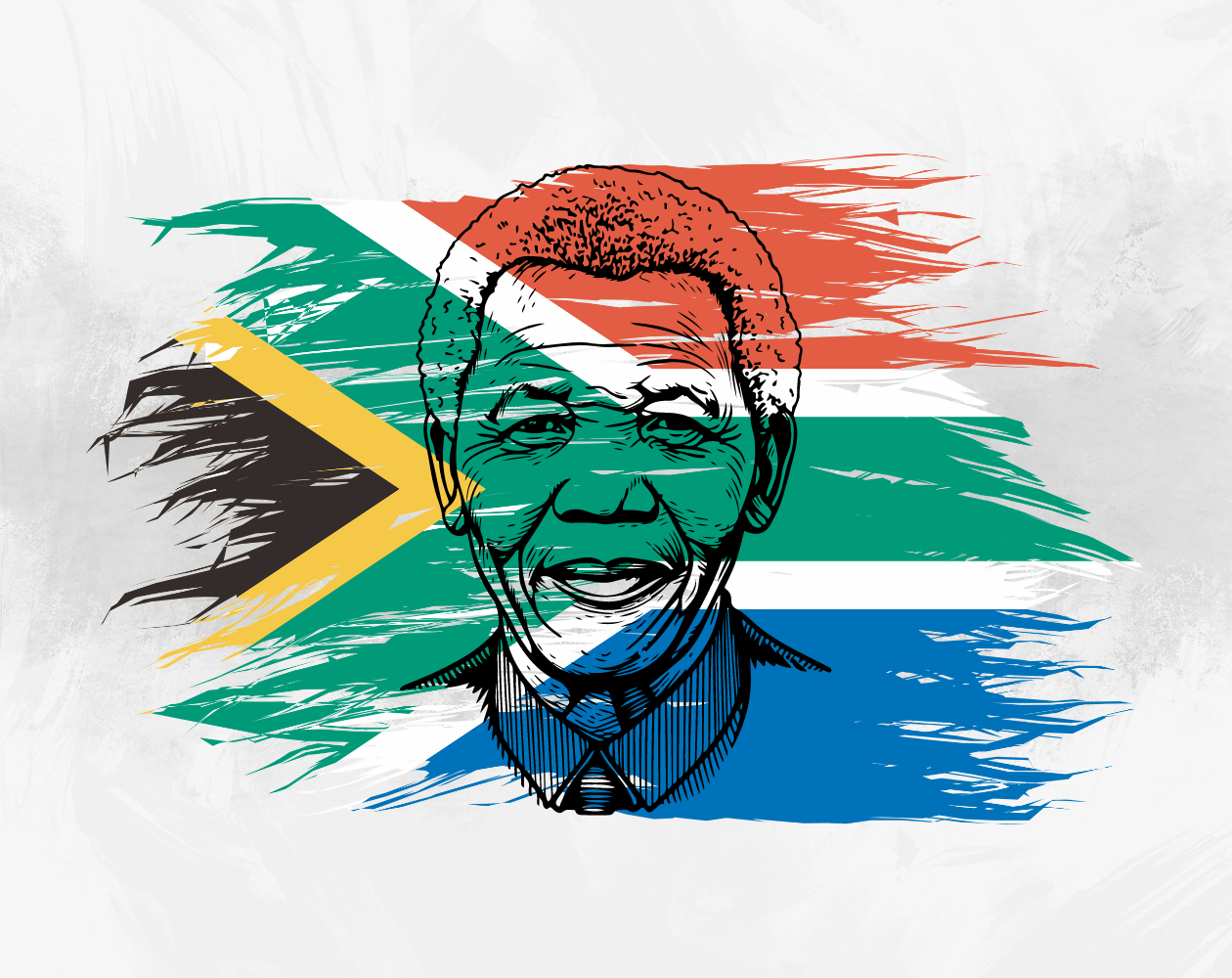Nelson Rolihlahla Mandela, born on July 18, 1918, in the village of Mvezo in Umtata, then part of South Africa’s Cape Province, is a name synonymous with resilience, leadership, and the struggle for justice. Mandela's journey from a rural village to becoming South Africa's first black president is a story of enduring dedication to human rights and equality.
Early Life and Family
Mandela was born into the Thembu royal family. His father, Gadla Henry Mphakanyiswa, served as a chief, and his mother, Nosekeni Fanny, was the third of his father's four wives. After his father's death, Mandela was placed under the guardianship of the Thembu regent, Chief Jongintaba Dalindyebo, who provided him with education opportunities and introduced him to African leadership structures.
Mandela married three times. His first marriage to Evelyn Ntoko Mase ended in divorce in 1957. Together, they had four children. In 1958, he married Winnie Madikizela, with whom he had two daughters. This marriage ended in separation in 1992 and divorce in 1996. His third marriage was to Graça Machel, the widow of former Mozambican president Samora Machel, in 1998.
Education and Early Career
Mandela attended the University College of Fort Hare and later the University of Witwatersrand, where he studied law. It was during his time at Fort Hare that he began to engage in political activities, joining the African National Congress (ANC) in 1944. After completing his studies, Mandela co-founded South Africa's first black law firm with Oliver Tambo, which provided affordable legal counsel to black South Africans who had no representation under apartheid laws.
Political Activism and Imprisonment
Mandela's political career was defined by his unyielding fight against apartheid, the system of institutionalized racial segregation and discrimination in South Africa. In 1961, Mandela co-founded Umkhonto we Sizwe ("Spear of the Nation"), the armed wing of the ANC, advocating sabotage to pressure the government into negotiations.
In 1962, Mandela was arrested and sentenced to five years in prison. In 1964, during the Rivonia Trial, he faced additional charges of sabotage and was sentenced to life imprisonment. Mandela’s statement from the dock at the trial became legendary: "I have fought against white domination, and I have fought against black domination. I have cherished the ideal of a democratic and free society in which all persons live together in harmony and with equal opportunities. It is an ideal which I hope to live for and to achieve. But if needs be, it is an ideal for which I am prepared to die."
Life in Prison
Mandela spent 27 years in prison, mostly on Robben Island. Despite harsh conditions and isolation, he remained a central figure in the anti-apartheid struggle, maintaining his commitment to peace and reconciliation. His imprisonment drew international attention and became a rallying point for global opposition to apartheid.
Release and Presidency
On February 11, 1990, Mandela was released from prison, a moment broadcast worldwide and celebrated as a monumental step towards ending apartheid. He immediately resumed his leadership role in the ANC and began negotiations with President F.W. de Klerk to dismantle apartheid. These efforts culminated in the first multiracial elections in 1994, in which Mandela was elected South Africa's first black president.
Mandela's presidency (1994-1999) focused on reconciliation, nation-building, and addressing the deep-seated inequalities in South African society. He established the Truth and Reconciliation Commission (TRC) to investigate human rights abuses during the apartheid era and promote healing and forgiveness.
Major Events and Achievements
- Nobel Peace Prize: In 1993, Mandela and F.W. de Klerk jointly received the Nobel Peace Prize for their work in ending apartheid and laying the foundations for a new democratic South Africa.
- Constitution: Mandela oversaw the drafting and adoption of a new South African constitution, one of the most progressive in the world, emphasizing human rights and equality.
- Reconciliation: His efforts in fostering national reconciliation included encouraging forgiveness and unity among South Africa’s deeply divided racial groups.
Later Years and Death
After stepping down as president in 1999, Mandela continued his work as a global statesman, focusing on peace, reconciliation, and combating HIV/AIDS. His health began to decline in the early 2000s, and he retired from public life in 2004.
Nelson Mandela passed away on December 5, 2013, at the age of 95. His death was met with an outpouring of grief and tributes from around the world, celebrating his life and legacy. Mandela’s funeral was a state affair, attended by global leaders and dignitaries, reflecting his impact on the world stage.
Legacy
Nelson Mandela's legacy endures in the continued fight for justice, equality, and human rights worldwide. Mandela Day, celebrated annually on his birthday, encourages people to honor his memory by making a difference in their communities. His life’s work remains a powerful reminder of the impact that one individual can have on the world.
Mandela’s journey from prisoner to president is a testament to his unwavering commitment to justice, his profound compassion, and his ability to inspire change. His legacy lives on, not only in South Africa but across the globe, as a symbol of the enduring struggle for human dignity and freedom.

